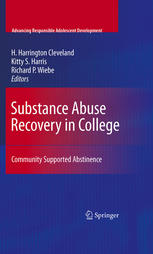

Most ebook files are in PDF format, so you can easily read them using various software such as Foxit Reader or directly on the Google Chrome browser.
Some ebook files are released by publishers in other formats such as .awz, .mobi, .epub, .fb2, etc. You may need to install specific software to read these formats on mobile/PC, such as Calibre.
Please read the tutorial at this link: https://ebookbell.com/faq
We offer FREE conversion to the popular formats you request; however, this may take some time. Therefore, right after payment, please email us, and we will try to provide the service as quickly as possible.
For some exceptional file formats or broken links (if any), please refrain from opening any disputes. Instead, email us first, and we will try to assist within a maximum of 6 hours.
EbookBell Team

0.0
0 reviewsMore than 80% of college students are drinking. More than a third do drugs. For students struggling with substance abuse, temptations on campus—and stressors that can derail abstinence—run high. In response, several colleges and universities offer effective support in the form of recovery communities, which are more appropriate to campus settings and young adult development than traditional 12-step groups alone.
Substance Abuse Recovery in College explains in authoritative detail what collegiate recovery communities are, the types of services they provide, and their role in the context of campus life, with extended examples from Texas Tech University’s influential CSAR (Center for the Study of Addiction and Recovery) program. Using data from both conventional surveys and end-of-day daily Palm Pilot assessments as well as focus groups, the book examines community members’ experiences. In addition, the importance of a positive relationship between the recovery community and the school administration is emphasized.
Topics covered include:
This volume offers clear insights and up-close perspectives of importance to developmental and clinical child psychologists, social workers, higher education policymakers, and related professionals in human development, family studies, student services, college health care, and community services.